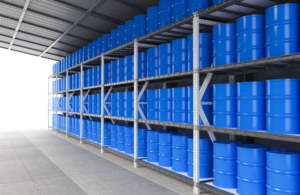
When sourcing Adapalene Active Pharmaceutical Ingredient (API) for pharmaceutical formulations, regulatory compliance is not optional—it’s mandatory. Ensuring that your API supplier provides valid documentation and adheres to global pharmaceutical standards protects your product quality, regulatory approvals, and brand reputation.
Key compliance documents such as the Certificate of Analysis (CoA), Drug Master File (DMF), and Good Manufacturing Practices (GMP) certification serve as critical checkpoints in verifying the integrity, quality, and legality of the Adapalene API.
In this comprehensive guide, we’ll explain each compliance requirement, why it matters, and how buyers can verify them when purchasing Adapalene API.
1. Why Is Compliance Important When Buying Adapalene API?
Adapalene API is the active ingredient used in acne treatment formulations like gels and creams. As a pharmaceutical-grade raw material, it must meet stringent standards to ensure:
- Consistent potency and purity
- Freedom from harmful impurities
- Compliance with pharmacopeial specifications (USP, EP, etc.)
- Regulatory acceptance by health authorities (FDA, EMA, WHO)
Failure to secure compliant API can lead to:
- Product rejection by regulators
- Failed batch releases
- Costly recalls
- Damage to brand reputation
This is why verifying COA, DMF, and GMP compliance is essential.
Explore a leading manufacturer of APIs.
With over 10 years of expertise, we ensure GMP compliance and provide reliable, high-quality solutions.
2. What is a Certificate of Analysis (CoA) for Adapalene API?
A Certificate of Analysis (CoA) is an official document issued by the API manufacturer’s quality control department. It reports the actual test results for a specific batch of Adapalene API.
A compliant CoA typically includes:
- Batch or lot number
- Manufacturing date and retest date
- Assay (purity) results
- Impurity profile
- Residual solvent testing
- Heavy metal testing
- Microbiological testing (if applicable)
- Appearance, melting point, solubility
👉 The CoA confirms that the batch complies with pharmacopeial standards like USP (United States Pharmacopeia) or EP (European Pharmacopoeia).
✅ Why is the CoA important?
- Provides scientific evidence of quality for each batch
- Is required for regulatory filing and batch release
- Serves as a traceability record in case of product issues
Without a valid CoA, your formulation may be non-compliant and rejected by health authorities.
3. What is a Drug Master File (DMF) for Adapalene API?
A Drug Master File (DMF) is a confidential, detailed document submitted to regulatory authorities that contains information about the manufacturing process, quality control, stability, impurities, and facilities involved in producing the API.
There are different types of DMFs:
- Type II DMF (US FDA): Covers drug substance, intermediates, and materials used in its preparation
- ASMF (Active Substance Master File) (Europe): EU equivalent of DMF
- CEP (Certificate of Suitability): Issued by EDQM for compliance with European Pharmacopoeia
✅ Why is the DMF important?
- Regulatory authorities (FDA, EMA) require a DMF to approve finished dosage forms containing Adapalene API
- Saves buyers from filing redundant manufacturing details
- Demonstrates that the API’s manufacturing process is validated and controlled
- Supports faster product registration and marketing approval
👉 If your supplier doesn’t have an active DMF or ASMF, you may face delays or regulatory rejection.
4. What is GMP Certification for Adapalene API?
Good Manufacturing Practices (GMP) certification confirms that an API is manufactured under internationally accepted quality standards.
A valid GMP certificate:
- Is issued by a regulatory authority (US FDA, EMA, WHO GMP inspectorates)
- Confirms that manufacturing operations follow cGMP guidelines
- Covers facility hygiene, equipment validation, personnel training, documentation, and quality control systems
GMP certification is mandatory for pharmaceutical APIs destined for regulated markets like the US, Europe, Japan, and Canada.
✅ Why is GMP certification important?
- Ensures product safety, quality, and efficacy
- Protects against contamination, cross-contamination, and errors
- Required for importation into the US and EU
- Reduces regulatory audit risks
Without GMP certification, an Adapalene API cannot legally be used in pharmaceutical formulations for regulated markets.
5. How to Verify a Supplier’s CoA, DMF, and GMP Compliance?
As a buyer, you must perform due diligence before purchasing Adapalene API. Follow these steps:
✅ Step 1: Request Documentation
Ask the supplier for:
- Latest CoA for a recent production batch
- Valid GMP certificate (issued by US FDA, EU GMP, WHO GMP)
- Active DMF number or copy of DMF acceptance letter
- If exporting to EU → request CEP or ASMF number
✅ Step 2: Cross-Verify Certifications
- Check if GMP certificate is listed on issuing authority’s website
- Verify DMF status on FDA’s DMF database or EDQM’s CEP database
- Confirm CoA data aligns with pharmacopeial monographs (USP/EP)
👉 Tip: Avoid suppliers unwilling to share documentation transparently.
✅ Step 3: Audit the Supplier (or Obtain an Audit Report)
In Europe, it’s legally required to audit API manufacturers outside the EU. You can:
- Conduct your own on-site audit
- Request a valid third-party audit report (within last 3 years)
- Verify audit compliance against ICH Q7 guidelines
6. What Happens if a Supplier Fails Compliance?
Choosing a non-compliant supplier puts you at risk of:
- Regulatory rejection of your drug application
- Import restrictions or customs rejections
- Need for re-sourcing, causing supply chain disruptions
- Delays in product launch
- Loss of customer trust and financial penalties
✔ Always prioritize suppliers who provide compliance-ready documentation upfront.
7. How Chemignition Laboratory Ensures Compliance
At Chemignition Laboratory, we guarantee compliance for global buyers of Adapalene API by providing:
- Valid GMP certification
- Support with ASMF/CEP documentation for Europe
- CoA compliant with USP/EP pharmacopeial standards
- Full regulatory documentation package (stability data, impurity profile, residual solvents data)
- Transparent, audit-ready operations
We serve clients across the US, EU, Latin America, Middle East, and Asia.
8. Best Practices for Buyers
- Verify all certificates and numbers directly with issuing bodies
- Use a pre-qualified supplier to avoid last-minute compliance gaps
- Conduct supplier audits as required by EU laws
- Document supplier evaluations and approval in your quality system
- Maintain a copy of each compliance certificate in regulatory files
Conclusion
Understanding and verifying Adapalene API COA, DMF, and GMP compliance is essential to safeguard your pharmaceutical manufacturing process, regulatory approval, and market entry.
By requesting valid documentation, cross-verifying certificates, and partnering with reputable suppliers like Chemignition Laboratory, you ensure consistent quality, regulatory readiness, and reduced compliance risks.
👉 Looking for a compliant Adapalene API supplier? Contact Chemignition Laboratory for regulatory-ready documentation and a competitive quote today!
FAQs
What is a Certificate of Analysis (CoA) for Adapalene API?
A Certificate of Analysis (CoA) is a document issued by the manufacturer’s quality control department, providing lab test results for each batch of Adapalene API. It confirms compliance with pharmacopeial standards (like USP, EP) for purity, impurities, residual solvents, and other key specifications.
Why is a Drug Master File (DMF) required for Adapalene API?
A DMF is required because it contains confidential information about the manufacturing process, quality controls, and facility compliance. Regulatory agencies (FDA, EMA) use the DMF to evaluate the API’s suitability for pharmaceutical use. Without a valid DMF, importing or registering drug products containing Adapalene API may be delayed or rejected.
What is GMP certification and why is it important for Adapalene API?
Good Manufacturing Practices (GMP) certification confirms that the Adapalene API is produced under internationally recognized quality standards. It ensures product safety, consistency, and compliance with health authority requirements. GMP certification is mandatory for importing Adapalene API into regulated markets like the US and Europe.
How can I verify if an Adapalene API supplier is compliant?
You can verify compliance by requesting and checking the supplier’s GMP certificate, CoA, DMF number (if required), and audit reports.
How does Chemignition Laboratory ensure compliance for Adapalene API buyers?
Chemignition Laboratory provides GMP-certified Adapalene API and ISO:9001 standards, and full regulatory documentation (stability data, impurity profile). We also support clients with audit documentation and technical queries to ensure regulatory readiness.



